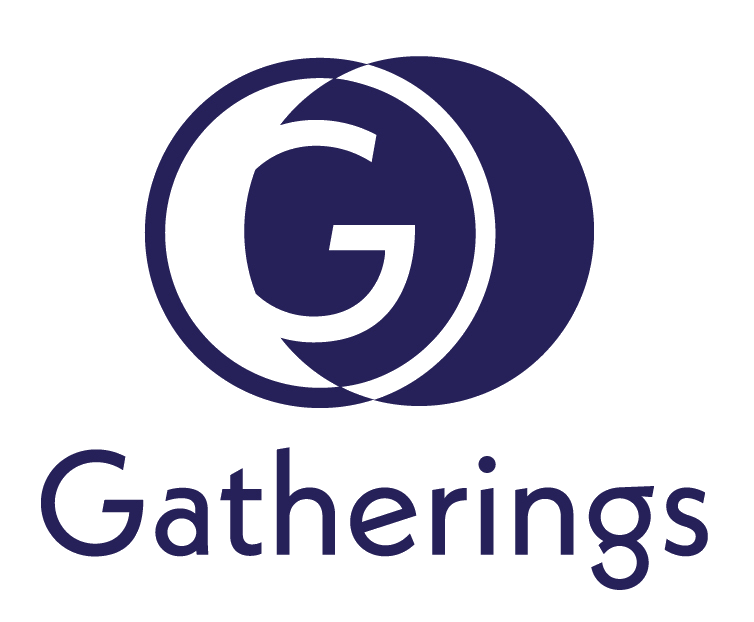The Gatherings governance structure derives from years of collaborative activity developed over the past six years, which established the approach for our proposed project. This governance design includes a broad-based, diverse, and inclusive community of researchers and community partner representatives, collaborating across a range of COMMITTEES, CLUSTERS, and NETWORKS, all grounded in values of equity, diversity and inclusion (EDI).
The project will be managed by an EXECUTIVE OVERSIGHT COMMITTEE, providing intellectual and ethical direction for the project, in the interests of equity, diversity, inclusion, rigour, and fair-mindedness. It will be Chaired by the Project Directors (made up of the Project Director, working in collaboration with rotating Co-Directors: Johnson & Boye/Carter/Kovacs). This Co-Directed approach is useful for the purposes of both succession planning and training. It employs the intentional combination of senior and early-career researchers working in tandem and in rotation, sharing in the fiscal and administrative work of a large project. This capacity-building is also supported by an Advisory Council, made up of established senior scholars with extensive administrative experience who can provide guidance and address conflict management. In addition, the Oversight committee consists of the Project Manager (hired), a Treasurer (rotating among research team members), and representatives from each research cluster, regional network and national partner (TMC, PCP, DCD). An experienced EDI Officer from within our ranks will provide necessary oversight (supported by mentorship in EDI provided by academic institutional partners), advising our Oversight Committee in all matters of hiring, assignment of duties, and the presentation of research findings. This EDI officer will review all project job postings created by clusters and networks to ensure use of non-gendered, inclusive and unbiased language; develop a strategy, in collaboration with partners, to ensure advertisements are publicly posted and widely circulated in ways that reach a diversity of candidates; advise on preferential hiring of underrepresented or disadvantaged groups in pools of qualified candidates, in alignment with the broad range of institutional and organizational policies. We will also include: an experienced Accessibility Officer from the research team to provide input for all appointments, work environments, and dissemination of research; and a Data Management Steward from our team to ensure overall compliance with ethical and responsible practices, supported by training from our institutional partner librarians. This Committee also has oversight of all quotidian budget allocations and the assignment of Research Assistants, and any changes in administrative structure and succession. It will meet annually.
Reporting to the Executive Oversight are two REGIONAL NETWORKS that implement activities across a range of locations and regions, ensuring connection to a broad range of audiences, and fostering potential for enriching locally-oriented partnerships throughout the project’s life. Each network is made up of research team members working within geographical proximity. These researchers play a role as liaison with partner organizations with whom they collaborate, and who also serve on the regional network as advisors (Western network: Lindgren, Kovacs, Blum, Fitzsimmons-Frey, Houle and associated partners; Eastern Network: Turner, Boye, Carter, Cole, Johnson, Jacobson, Julien, Jones and associated partners). These networks promote cross-fertilization of research knowledge specific to their local and regional contexts, while also ensuring the execution of scholarly (research/ training) and public-facing programming across institutions, and in collaboration with local partners (libraries, archives, galleries, theatre companies, artists), within their broadly defined regions. Regional and local partners will advise on research activities and knowledge mobilization strategies while also supporting community outreach. Chairship of each network rotates yearly among co-investigators assigned to each region. This aligns our administrative approach with a commitment to early-career scholar training and mentoring. Networks will meet bi-annually, with the Chair of each network reporting to the executive oversight committee, cluster subcommittees, and other regional networks.
The implementation of activities executed across the regional networks is informed by the direction of three RESEARCH CLUSTERS (Oral Histories, Digital Humanities, Performing Archives), which bring together researchers from across geographically located networks, cross-pollinating methods and approaches across regional boundaries, and promoting training and mentorship by bringing together emerging, established, and emeritus scholars through research collaboration and development. Each cluster is composed of researchers with considerable expertise in ethics/consent, accessibility, editorial leadership, funding, and technical service relevant to their particular cluster area. These clusters develop parameters, guidelines, and ethical practices for implementation of activities across the project (including advising on the practice of EDI, and on translation, accessibility, and data management) which are shared with the networks. They are also responsible for organizing project research symposia and publications, as well as advising on curation of culminating project exhibitions (in collaboration with national partners). The clusters meet quarterly and report to both regional networks and the oversight executive committee. The reciprocal reporting between regional networks and cluster subcommittees reflects a commitment to implementing non-hierarchical structure in governance design.
Involvement of Partner Organizations: Each locally/regionally situated partner is assigned a researcher liaison to facilitate communication between project and partner; Research partners collaborate with Co-Investigators on individual projects at the regional and local levels, and are integral members of networks, which guide activities in each region (artist to artist interview series, Artists-in- Archives residencies, Students- in- Archives work experience program, digital performance history gatherings, archive parties, oral history workshops, exhibitions), liaising with the Executive Oversight Committee; National partners sit on the Oversight Committee, which guides overall decision-making and project directions.


